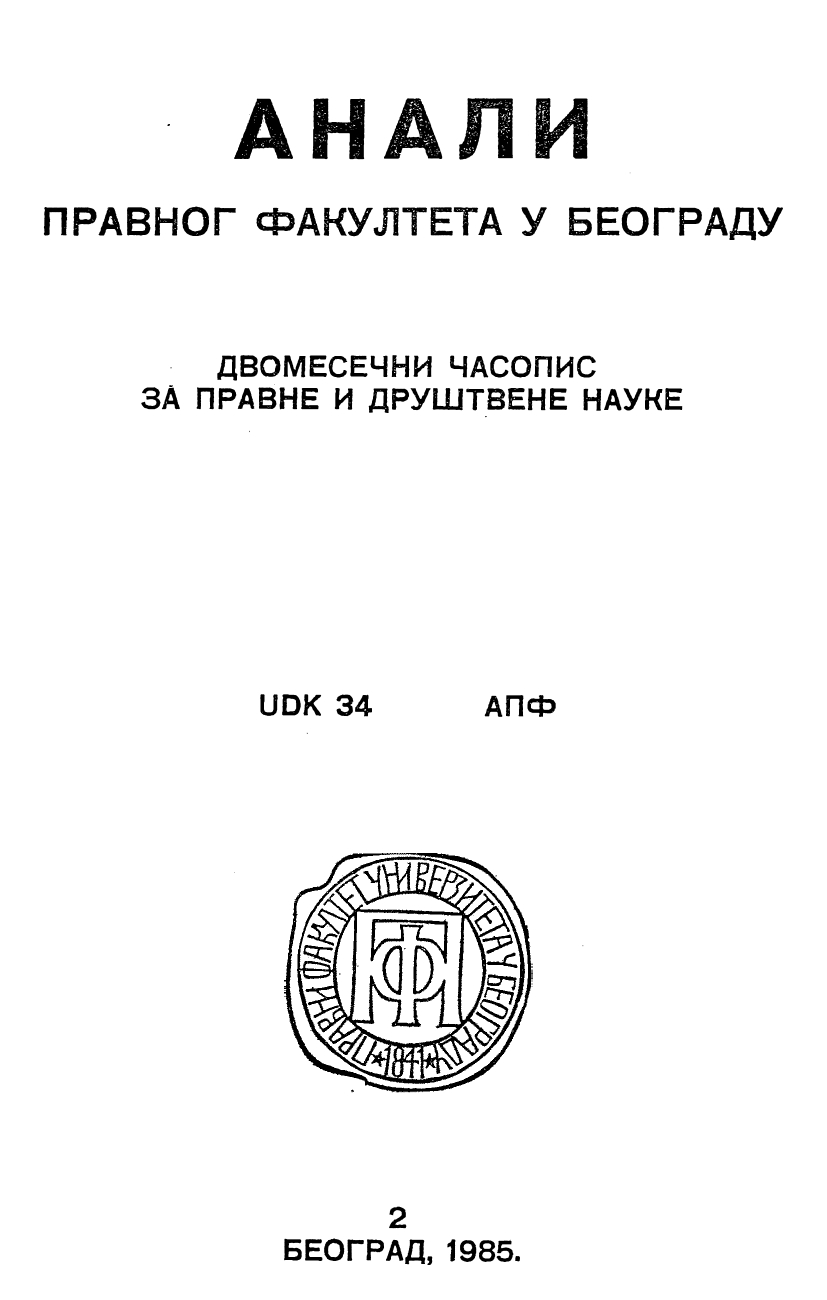ФИКСНИ УГОВОР У СВЕТЛУ ЗАКОНА О ОБЛИГАЦИОНИМ ОДНОСИМА
FIXED CONTRACT ACCORDING TO THE LAW ON OBLIGATION RELATIONS
Author(s): Jovan SlavnićSubject(s): Law, Constitution, Jurisprudence
Published by: Правни факултет Универзитета у Београду
Summary/Abstract: This work is dedicated to the problem of the fixed contract (Fixgeschdft) as regulated by the Law on Obligation Relations enacted in 1978. The method applied is the comparison between relevant elements and instruments in that area both according to the existing and the previous Yugoslav law. The introduction deals with reasons justifying the elaboration of fixed contract after the enacting the Law on Obligation Relations which is otherwise the theme of a monograph by the author of 'the present article written in 1968. In the first part the notion and creation of the fixed contract is elaborated (namely a contract where contracting parties agree that such a contract should be deemed rescinded if in a determined period of time the debtor does not meet his obligation) as well as compared to a contract which is rescinded in the same way, namely, ipso jure by non-fulfilment of the duty of debtor within the delay provided for in the contract. In such latter contract the period of time for fulfilment of the obligation is an essential element of the contract according to the nature of transaction. The author, namely, proves that these two legal institutes are of a different nature also according the to Law on Obligation Relations. In the second part the conditions are studied which are the basis for the delay of discharging the obligation to become the essential element of one of the contracts according to the very nature of the transaction, which is particularly important due to the fact that the above Law does not define that legal category. Further elaborated are the following: the creation and development of that category in Yugoslav law, and critical analysis of the way of its formulating in the legislation. Third part as dedicated to legal consequences of delay in discharging the obligation out of fixed contract and of the contract where the time-limit for discharging the obligation is an essential element of the contract according to the nature of transaction. These consequences are the rescission and fulfilment, namely maintaining the contract valid. While discussing the taking place and effect of rescission in these contracts, the author proves that in this area in Yugoslav law significant approach has taken place to the category of the so called nonfixed contracts, namely the ones where the time-limit for discharging the obligation is not an essential element of contract. Here the author develops criticism towards those authors who do not note this approach, relating instead the rescission, both in terms of its taking place and effect, to solutions of the former Yugoslav law in this sphere. In addition, the author elaborates in this part some open issues in the above mentioned problem. Concluding remarks contain a review of tire most important of the authors elaborating the questions related to fixed contracts.
Journal: Анали Правног факултета у Београду
- Issue Year: 33/1985
- Issue No: 2
- Page Range: 224-253
- Page Count: 30
- Language: Serbian

